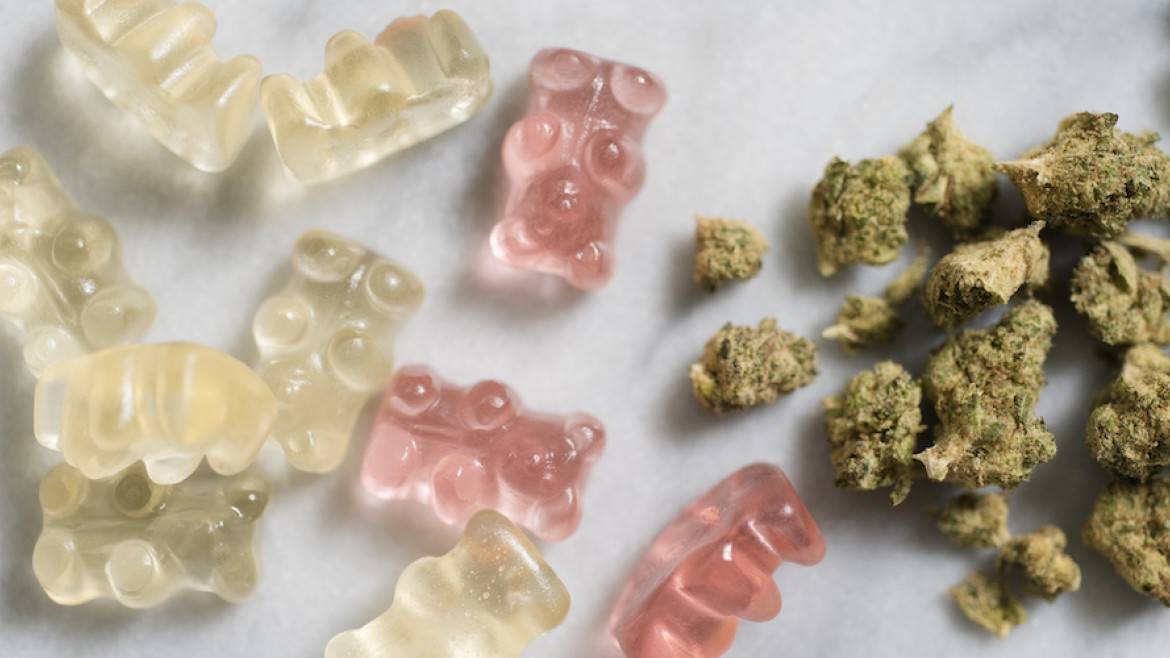You are here
Home 🌿 Medical Cannabis News 🌿 Doctors urge Ottawa to lower THC content in cannabis edibles 🌿Doctors urge Ottawa to lower THC content in cannabis edibles

Ottawa should reduce the THC content permitted in legal cannabis edibles to limit the risk of overdoses, say Canada’s doctors.
The allowable maximum amount of 10 mg of THC per edible should be lowered to five mg, says the Canadian Medical Association (CMA).
The experience in U.S. states such as Colorado, where the derivatives have been legal for several years and have led to hospitalizations, should serve as a warning to Canadian regulators, said CMA president Sandy Buchman.
“The CMA maintains that 10 mg per discrete unit and package is too high and should be established at a maximum of 5 mg per dose, given the higher risks of overconsumption with edibles,” Buchman said in a statement.
The physician said a higher risk of children ingesting the products, which are set to be legalized in a month, also call for the reduced level of THC, the psychoactive ingredient in cannabis.
Not enough is known about the medical effect of cannabis, particularly on seniors, adolescents and children, said Buchman.
“With so much still unknown about the effect of cannabis, the introduction of edibles is adding yet another level of complexity for Canadians to navigate,” he stated.
Alberta Health and Wellness echoed some of the CMA’s concerns.
“Quality research on the health risks of cannabis is lacking — especially the new classes of cannabis that will be legal this fall,” spokesman Steve Buick said in a statement.
“Until we know more, it is best to proceed with caution.”
Buick said the department will ensure educational materials are available on the derivatives and that “regulated health professionals are aware of potential health risks.”
Edibles and other cannabis derivatives have long been readily available on the black market, and producing pot-infused food at home is legal in Canada.
An official with Health Canada, which regulates legal cannabis at the federal level, said they couldn’t comment on the CMA’s statement Wednesday.
But the federal government has said that unlike U.S. states that included edibles in their initial phase of cannabis legalization, it delayed ending prohibition on the products for a year to further study the matter and receive public input.
“The amended regulations seek to reduce the health risks of these cannabis products,” states the ministry’s website.
“At the same time, the amendments provide for a broad diversity of cannabis products, which will help displace the illegal market.”
Along with the 10 mg limit on THC, regulations also include childproof packaging and restricting ingredients that would increase the products’ appeal.
The CMA said it applauds some of Health Canada’s measures, such as a legislative review to evaluate the merits of its regulations after three years and safeguards to prevent cross-contamination of other food at processing sites.
Emergency medicine specialist Dr. Eddy Lang said he hasn’t heard of any special directives on dealing with edibles but that physicians are well aware of their properties, which include effects being delayed and lasting considerably longer than smoking.
“The health-care teams are well aware of that and will be on a sharp lookout for it,” he said.
Emergency physicians in Calgary last May said they’d seen a 25 per cent increase in cannabis hyperemesis syndrome, a condition marked by intense, prolonged vomiting that has mostly been linked to smoking the drug.
According to an Annals of Internal Medicine Study, edible pot accounted for 10.7 per cent of emergency room visits at the University of Colorado Health emergency dept. in Aurora, Colo., from early 2012 to late 2016, though those products comprised only 0.32 per cent of the drug’s sales.
Even so, the total numbers pale in comparison to admissions for alcohol overuse.
In Denver, where recreational cannabis has been legal for five years, fewer than 50 people presented at hospitals for cannabis poisoning, or 0.02 per cent of all visits recorded in the 2015 study.
“These small numbers suggest that the burden of cannabis poisoning and adverse effects in Denver is low compared to the total number of individuals seeking care for any reason,” states a report prepared by Denver Public Health.
“This does not mean that individuals are not using cannabis or that negative health consequences related to cannabis are not occurring.”
With a 60-day notice period for licensed cannabis producers to notify Health Canada of their intent to produce edibles and other extracts, the products aren’t expected to arrive on shelves until December at the earliest.
420 Intel is Your Source for Marijuana News
420 Intel Canada is your leading news source for the Canadian cannabis industry. Get the latest updates on Canadian cannabis stocks and developments on how Canada continues to be a major player in the worldwide recreational and medical cannabis industry.
420 Intel Canada is the Canadian Industry news outlet that will keep you updated on how these Canadian developments in recreational and medical marijuana will impact the country and the world. Our commitment is to bring you the most important cannabis news stories from across Canada every day of the week.
Marijuana industry news is a constant endeavor with new developments each day. For marijuana news across the True North, 420 Intel Canada promises to bring you quality, Canadian, cannabis industry news.
You can get 420 Intel news delivered directly to your inbox by signing up for our daily marijuana news, ensuring you’re always kept up to date on the ever-changing cannabis industry. To stay even better informed about marijuana legalization news follow us on Twitter, Facebook and LinkedIn.




